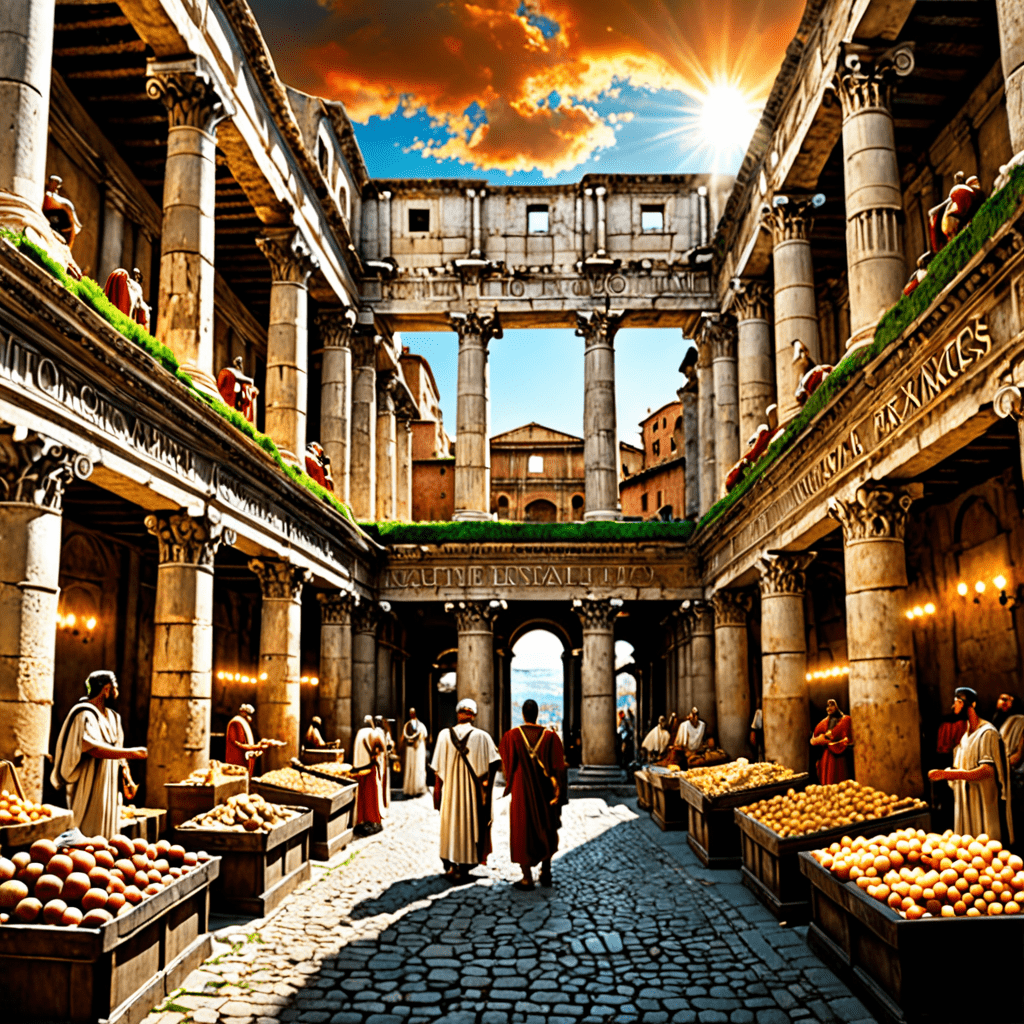The Mythological Origins of Roman Markets and Exchanges
Explore the fascinating connection between ancient Roman markets and mythology.
Understanding the Role of Gods and Goddesses in the Roman Market Scene
In Roman mythology, various deities played significant roles in shaping the market and exchange practices of the ancient Romans. Mercury, also known as Hermes in Greek mythology, was the god of financial gain, commerce, and eloquence, making him a central figure in the realms of trade and exchange. Traders and merchants often sought his blessing for prosperous business ventures. Similarly, Goddess Fortuna, the divine embodiment of luck and fortune, was highly revered by Romans engaging in economic activities. Offerings and prayers were made to Fortuna to ensure success in market dealings and wealth accumulation.
The Influence of Mythological Tales on Roman Market Rituals
Mythological narratives and stories were not merely entertainment for the ancient Romans but served as instructional tools that influenced various aspects of daily life, including market practices. The tales of Roman gods engaging in commerce or demonstrating the importance of fair trade and honesty instilled ethical values in traders and buyers alike. For instance, the myth of Ceres, the goddess of agriculture, emphasized the significance of providing fair prices for agricultural products, thereby promoting equitable exchanges in the market.
Economic Symbols and Iconography in Roman Markets: Mythical Connections
Ancient Roman markets were often adorned with symbols and iconography that directly drew inspiration from mythological elements. For example, depictions of Mercury with his distinctive caduceus staff were commonly found in commercial areas, symbolizing prosperity and safe transactions. Temples dedicated to Fortuna were focal points for traders seeking blessings for successful business ventures. The incorporation of such mythological symbols in market spaces not only added a mystical element to transactions but also served as a constant reminder of the divine forces believed to influence economic activities.
Legacy of Mythological Influence on Modern Market Culture
The mythological origins of Roman markets and exchanges continue to resonate in modern market culture. Concepts such as fair trade, ethical business practices, and seeking blessings for prosperity can be viewed as a reflection of the enduring influence of ancient myths on commercial activities. By recognizing the heritage of mythological beliefs in market dynamics, we gain a deeper understanding of the traditions and values that have shaped economic exchanges throughout history.
Frequently Asked Questions about the Mythological Origins of Roman Markets and Exchanges
What are the mythological origins of Roman markets and exchanges?
In Roman mythology, markets and exchanges were often associated with the god Mercury, who was the patron god of commerce, trade, and financial gain. It was believed that Mercury’s influence and guidance were essential for prosperous business dealings.
How did mythology influence the perception of markets in ancient Rome?
Mythology played a significant role in shaping the Romans’ views on markets and exchanges. The stories and symbolism surrounding gods like Mercury reinforced the importance of fair trade, honest transactions, and the concept of reciprocity in business interactions.
Why was Mercury considered the god of commerce and markets in Roman mythology?
Mercury, known for his swiftness and eloquence, was deemed the perfect deity to oversee commerce and trade due to his ability to facilitate communication and negotiation. The Romans believed that invoking Mercury’s blessings would bring success and prosperity to their commercial endeavors.



